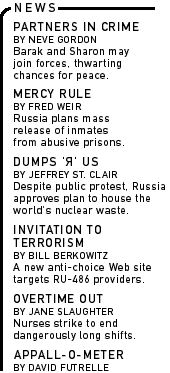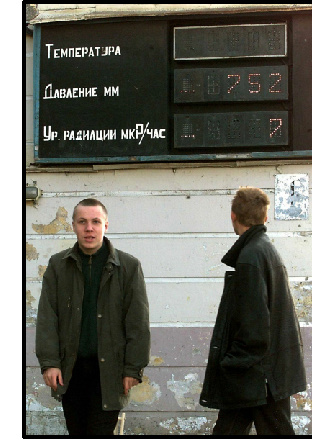

|

|

|

|
| |
|
|
|
It's official: Russia has now offered itself up as the world's nuclear dumping ground. On December 21, the Russian Parliament voted 320 to 30 to overturn an environmental law that prohibited the import of commercial nuclear waste. The vote capped a two-year lobbying assault by Minatom, the Russian nuclear agency, and an international assortment of nuclear profiteers, ranging from tycoons and former CIA agents to European and Japanese utilities and even a few renegade environmental groups, including the Natural Resources Defense Council (see "Hot Property, Cold Cash," October 17, 1999). Now Minatom is free to accept more than 20,000 tons of radioactive waste from the United States, Europe and Asia over the next 50 years. The waste is slated for storage at several sites across Russia, where it will more than double the nation's own nuclear waste, now estimated to total more than 14,000 tons. Russian officials have boasted that dumping fees will bring $20 billion into the
Much of the money may go to build a new generation of nuclear power plants. According to a leaked May 2000 document titled "Strategy for Nuclear Development in 2000-2050," Minatom has proposed the construction of some three dozen new commercial atomic reactors in Russia, which it says will create a stockpile of high-grade plutonium for a new phase of nuclear weapons. Russian environmentalists call them "dirty nukes." The Duma's decision flouted the most energized environmental campaign in Russian history. Environmental groups had gathered 2.5 million signatures to make the issue a national initiative to be voted on by the Russian people. The petition campaign garnered a half-million more signatures than required by Russian law, but the government threw out more than 600,000 of them due to technicalities. Russian greens say they were sabotaged. "This was done intentionally
to stop us," says Ivan Blokov, the campaign director of Greenpeace
Russia. "They want to prevent all attempts to save the environment.
Economic interests have been put above all else, including human
health."
|


